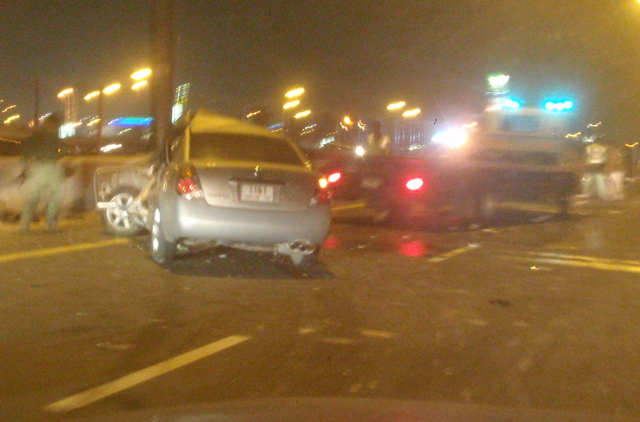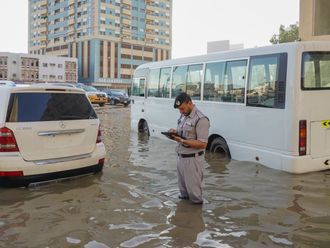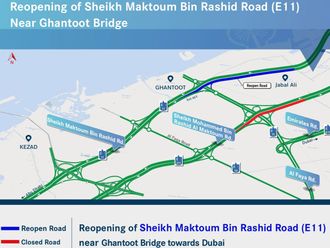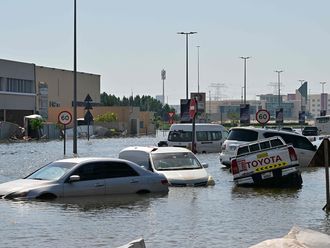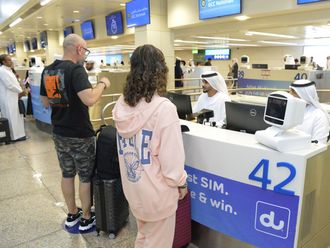Dubai: Road fatalities have dropped drastically in Dubai in the last decade from 22 deaths per 100,000 people in 2006 to 2.5 last year, Mattar Al Tayer, director-general and chairman of the Board of Executive Directors of the Roads and Transport Authority (RTA), announced during a lecture to university students.
Addressing students of American University in Dubai about the role of youth in future transportation, Al Tayer highlighted Dubai’s relentless efforts in keeping pace with the future needs by accelerating improvements of roads and transport means in the emirate.
Reflecting on the RTA’s achievements since 2005, Al Tayer highlighted Dubai’s contribution in getting the UAE ranked number one in the quality of roads worldwide over the past five years, according to the Global Competitiveness Report of the World Economic Forum in Davos.
He said RTA’s continuous efforts have improved the road safety levels in the city, with the road fatalities in Dubai dropping from 22 per 100,000 people in 2006 to 2.5 per 100,000 people in 2017.
Announcing plans that will help in protecting the environment, raising traffic safety level, and shortening the time of travelling from one place to another, he said: “The Dubai Self-Driving Transport Strategy stands out from other global strategies as the transition towards autonomous transport in Dubai is driven by the government, whereas it is the private sector that steers the process in other cities and countries,” Al Tayer said.
He added that the strategy spans the entire public transit network comprising trains, buses, marine transport and taxis in addition to private vehicles, whereas many countries are focused on a limited number of transit means.
The Dubai strategy involves a global competition for engaging advanced companies in smart mobility. Details of this challenge will be unveiled at a later stage.
“The technological advancement of transport has opened new horizons for developing transit means such as the Hyperloop, driverless cars and autonomous aerial vehicles. All of these modes will be operating in Dubai, particularly as preparations for Expo 2020 are gathering pace,” he noted.
According to Al Tayer, Dubai is focused on adopting five transit means that set the global trends and bring in new technologies such as the driverless transport, creative transit means (Hyperloop and air taxi), shared mobility, and transport on demand.
“The implementation of the Dubai Self-Driving Transport Strategy will reduce mobility cost by 44 per cent, curb demand for parking spaces by 50 per cent, cut carbon emissions by 12 per cent, and curtail traffic accidents and associated losses by 12 per cent. It will also boost the happiness of people by offering them new mobility options,” added Al Tayer.
Commenting on the role of universities in shaping the future of roads and transport, Al Tayer called for contributions catered to the future of roads, and motivating students through competitions. He stressed the importance of students’ training exposure in their respective fields before graduation in order to grasp knowledge, which he considered as much more important than making money.


